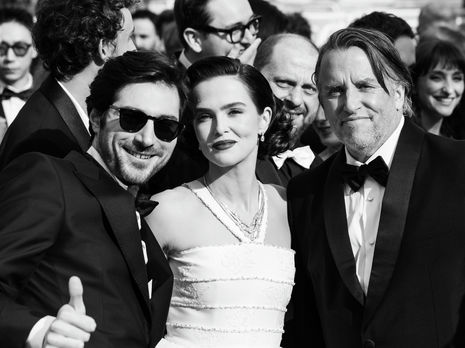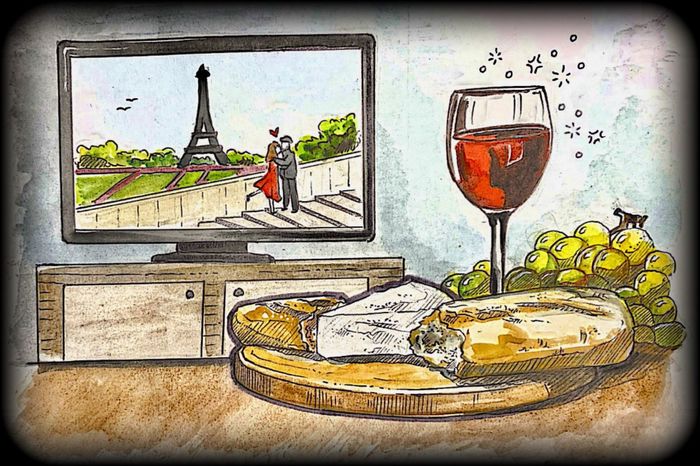A beginner’s guide to the French New Wave
Amanda Ljungberg guides you through the New Wave landscape

Nouvelle Vague, Richard Linklater’s latest feature, premiered at Cannes last month, depicting the early days of the French New Wave. This was, in short, a creative movement emerging in 1950s France which prioritized the individualistic, nonconformist visions of the auteur; it looked towards self-awareness and authenticity, and its innovations and characteristics remain widely studied and hugely influential today. Linklater has chosen to focus largely on the making of Jean-Luc Godard’s Breathless, a film which arguably began (or encapsulated) the ideals of the movement. Nouvelle Vague has been sold to Netflix, meaning the world will be able to honour the great French director from the comfort of their homes. Will this really, as some optimistic journalists have suggested, renew youth interest en masse in the likes of Godard, Truffaut, and Rohmer? Probably not. Regardless, in the spirit of celebration and for the love of Cinema, capital ‘C’, I’ve put together a beginner’s guide to some of the most well-known films of the movement. Without further ado, here are some essential French New Wave picks to get you in the right frame of mind for Linklater’s appreciation piece.
Breathless
“A restless, swaggering, explosive film”
This is arguably the quintessential French New Wave film. Obviously, seeing as Nouvelle Vague follows its production, Godard’s most popular film will give you a substantial sense of appreciation for the movement and its key players. Possibly his most accessible work, Breathless is an homage to American genre films which is still wholly individualistic. We follow petty criminal Michel and his tempestuous relationship with American Patricia through what sometimes feels like an emotional daze, collecting money, hiding from the law, putting feelings to words and vice versa. Famously chaotic in its cheap, guerilla-style production, Godard set out to deliberately shatter filmic conventions, and as such this is, for many, the true “beginning” of the New Wave. A restless, swaggering, explosive film, endlessly inspiring and, although I am already descending into cliché, truly revolutionary.
The 400 Blows
The debut feature of Francois Truffaut is a beautiful, touching coming of age film, casting in sharp, irreverent style the disaffected loneliness of troubled youth. It stars French New Wave legend Jean Pierre-Leaud in his first ever role at the age of 13(!), marking the beginning of a decades-long partnership with Truffaut, who he would go on to work with 6 more times (4 of which were sequels to The 400 Blows). This compelling movie redefined realism, breathed life into the caméra-stylo (camera as pen) concept, and brought wider appeal to many editing, narratological, and cinematographic elements which we might now take for granted. This is a great intro to French New Wave (although it might just be the best of the lot).
Cleo from 5 to 7
“A masterpiece in subjectivity from a legendary filmmaking personality”
Agnes Varda’s meditation on metropolitan life might just be my favourite pick of this list. The film moves with and through Paris as we follow singer Cleo in real-time as she goes about her day while waiting for the results of her medical tests. The film is entrancing, showing us a foregone 1960s Paris which is brimming with life and energy. That this liveliness sits in contrast with Cleo’s quiet fear and existential worry leaves us with some deeply intimate moments of introspection and self-discovery, deeply entwined as they are with the task of navigating and understanding your place in an restless city. A masterpiece in subjectivity from a legendary filmmaking personality, and the most established female director of the French New Wave.
Le Samouraï
Jean-Pierre Melville’s crime picture is more a character study than a thriller. The iconic Alain Delon plays a near-silent hitman facing, guided by honor and with petty emotions in rigid check, shifts in fortune amidst his underworld business. This is a stripped-back, suspenseful thriller which prioritizes control before affected action, teetering between moody masculinity and Melville’s penchant for the dreamlike. It is cool in every sense: measured dialogue, muted colours, somber performances. Particularly influential in New Hollywood, this is a timeless film, rich for analysis and interpretation.
Masculin Féminin
It seems only fair to add another Godard film to the list. Masculin Feminin is a little less accessible than Breathless, but it is certainly more funny. We follow a host of curious young characters navigating their shifting societies, forming and falling out of jobs and relationships. While its political context is constantly present, its dealings with love, philosophy and misunderstanding are immortal. It is the vague impression of these individuals, emblematic as they are of 60s French youths and indeed of all confused urban youths who think they are the first to be thinking and behaving the way that they do, that we are left with. Some say that this is French New Wave coming full circle. And as such it is only fitting that my list ends here.
 News / Cambridge academics sign open letter criticising research funding changes22 February 2026
News / Cambridge academics sign open letter criticising research funding changes22 February 2026 News / University Council rescinds University Centre membership20 February 2026
News / University Council rescinds University Centre membership20 February 2026 News / Supporters protest potential vet school closure22 February 2026
News / Supporters protest potential vet school closure22 February 2026 News / Hundreds of Cambridge academics demand vote on fate of vet course20 February 2026
News / Hundreds of Cambridge academics demand vote on fate of vet course20 February 2026 Comment / A tongue-in-cheek petition for gowned exams at Cambridge 21 February 2026
Comment / A tongue-in-cheek petition for gowned exams at Cambridge 21 February 2026








